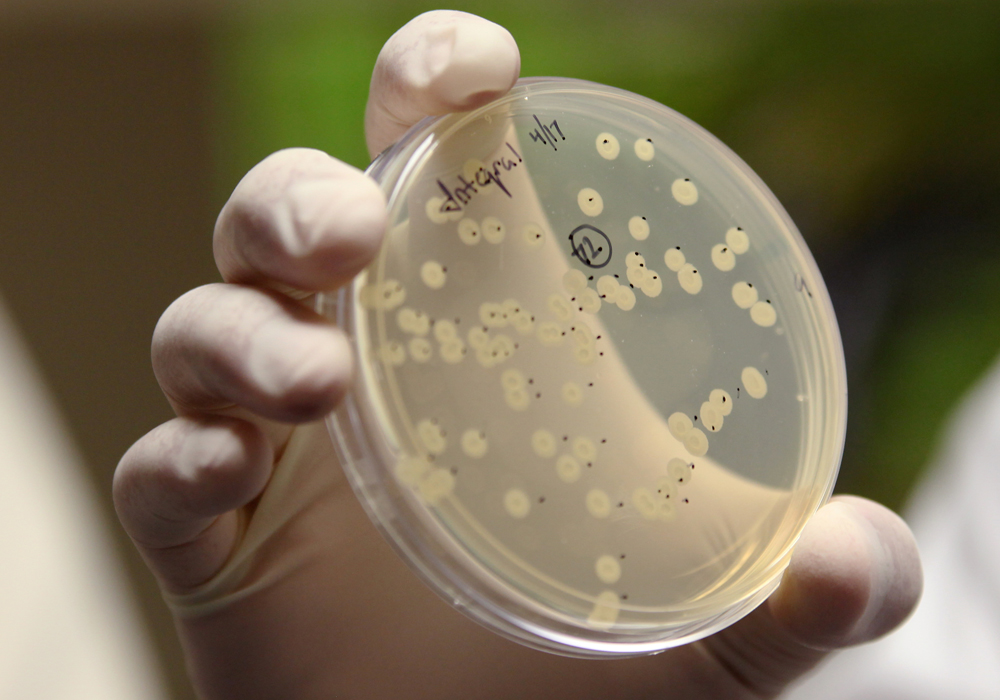Producer groups are concerned because they don’t want the government to make significant cuts to specific programs
Alberta farmers are mulling the future of research in the province as the government looks to potentially re-jig the system.
Producers at FarmTech in Edmonton recently passed a motion urging Alberta Pulse Growers to engage with other organizations to ensure a healthy future for agriculture research.
“Commissions get farmers’ money and some research organizations are having a tough time to keep the doors open, so, at the end of the day, we need to keep the dialogue open between the commissions and these research organizations,” said Laverne Gill, who moved the resolution at the pulse meeting.
Read Also

Agri-business and farms front and centre for Alberta’s Open Farm Days
Open Farm Days continues to enjoy success in its 14th year running, as Alberta farms and agri-businesses were showcased to increase awareness on how food gets to the dinner plate.
Gill said the commissions should look to partner with non-traditional research organizations, like Farming Smarter and FarmRite, given they provide producers with ideas they can put to practice.
“They do important work,” he said. “They may not do the PhD-style stuff, but they do the work that is relevant to most farms and quickly adaptable to most farms.”
A similar motion failed to pass at the Alberta Wheat Commission meeting. The motion mentioned potentially partnering with Farming Smarter and FarmRite directly, but those opposed felt more organizations should be included in potential discussions.
At the Alberta Canola Producers Commission meeting, a similar motion was deferred to next year for discussion.
Debate over the future of Alberta research speaks to a larger shift in the industry.
The provincial government is currently consulting farmers about how they would like research to be conducted. It could mean less government staff doing the work, resulting in more partnerships with post-secondary schools and private industry.
“We want to make sure we do it in the most effective way,” said Alberta Agriculture Minister Devin Dreeshen, speaking to reporters after Canada’s Agriculture Summit in Calgary. “We want to see what type of research needs to be done that isn’t being duplicated in other provinces or by other groups.”
Dreeshen said the province spends $36 million annually on agriculture research. It has also provided an additional $43 million for Canadian Agricultural Partnership funding programs.
The province recently laid off 50 workers in the agriculture and forestry department, most in the primary agriculture division. About a dozen were involved in agricultural research.
The layoffs have caused a stir among some farm groups. They wonder what it might mean for agriculture research in the future.
“The direction of where that funding goes might change, and that has caused some uncertainty,” said Craig Walsh, a farmer who attended the pulse meeting. “There is a bit of fear with that.”
Lynn Jacobson, president of the Alberta Federation of Agriculture, said there isn’t yet a clear definition of what farmer-led research means.
He said scientists are needed, especially for long-term research.
“We need scientists to give direction in different areas,” Jacobson said, following the AFA’s annual meeting in Leduc, Alta. “Farmers don’t have that expertise. They’re not PhDs, and they’re not looking that far ahead. They’re looking at immediate problems.”
Alberta’s agricultural commissions and boards have also weighed in, telling the government in a white paper that it should not make major cuts.
However, the commissions said there should be more partnerships with post-secondary schools and industry.
“Industry recognizes the necessity of reduced government spending; however, also wants to emphasize the importance of government research funding and scientific research to support industry competitiveness, sustainability and profitability,” the document said.
As well, it said pest and disease surveillance, bee health and safety, animal health and assurance, and food safety monitoring should stay within the ministry.
It said efficiencies could be found to reduce overlap, but cuts could create problems. If disease outbreaks aren’t monitored, it suggested, it could have ramifications for production and market access.
The paper recommended the province partner with the University of Alberta and industry at the Field Crop Development Centre in Lacombe.
Poultry and livestock research could be integrated with the U of A, Agriculture Canada, or the veterinary faculty at the University of Calgary, it added.
















